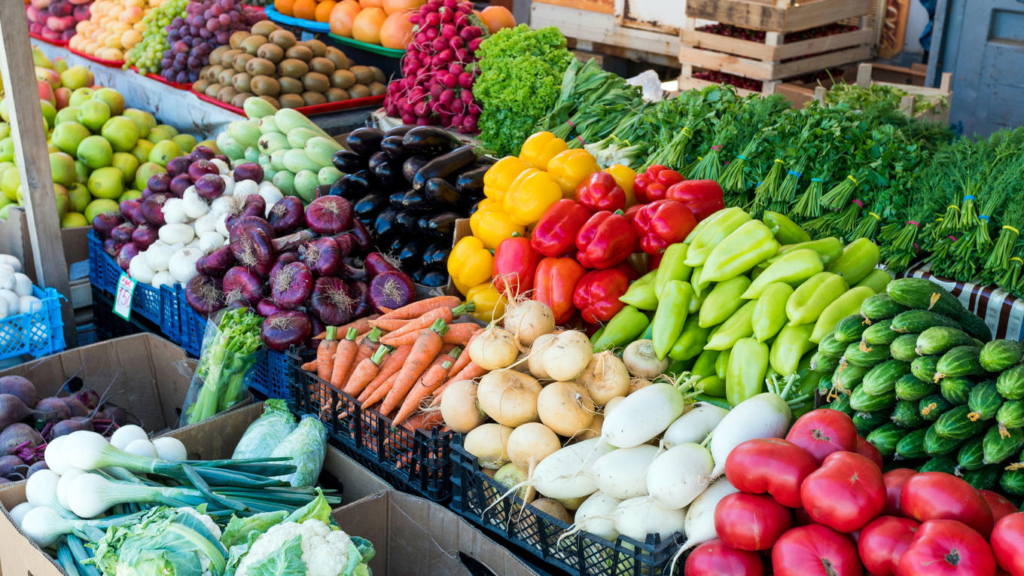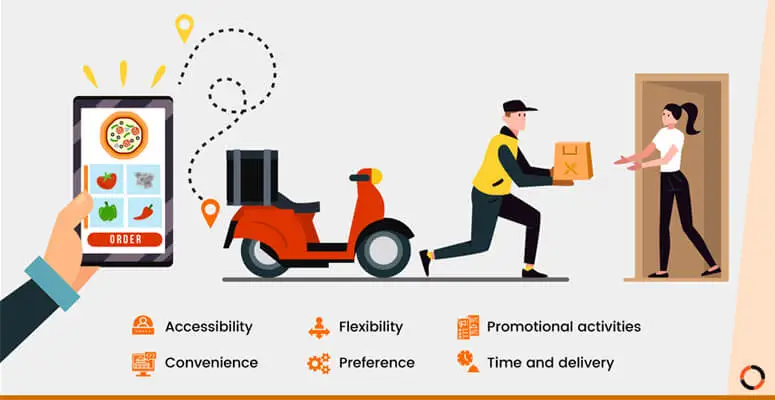Saving Money on Groceries in Nigeria: Tips and Tricks
In Nigeria, where the economy can be as unpredictable as our weather, saving money on groceries has become more than just a smart move, it’s almost an art form. Whether you’re in Lagos, Abuja, or in the heart of the East, the cost of living keeps pushing our wallets to the limit. But fear not! This guide is here to help you navigate through the maze of grocery shopping in Nigeria without breaking the bank. Let’s dive into how you can make your naira stretch further at the market or supermarket.
Understanding the Nigerian Grocery Market
First off, let’s talk about the lay of the land. The Nigerian grocery landscape is diverse, from open markets to modern supermarkets. Prices can vary wildly depending on where you shop. For instance, the Mile 12 Market in Lagos might offer you the cheapest vegetables, while Shoprite might be your go-to for bulk buying at slightly higher but often consistent prices.
- Market vs. Supermarkets:
- Markets: Generally cheaper, especially for fresh produce. But be ready to haggle.
- Supermarkets: Offer convenience, a wider range of products, and sometimes bulk discounts, but at a higher cost per item.
Strategic Shopping: Timing is Everything
One of the secrets to saving money is knowing when to shop.
- Shop Early Morning or Late Evening: Many markets, especially in places like Lagos or Kano, discount items towards the end of the day to clear stock. Also, shopping early in the morning can mean fresher produce at a lower price since vendors want to sell off quickly.
- Seasonal Buying: Fruits and vegetables are cheaper when they’re in season. For example, buy tomatoes during the dry season when they’re abundant and cheaper.
The Power of Bulk Buying
Bulk buying can be a game-changer, but it’s not just about grabbing everything in sight:
- What to Buy in Bulk:
- Rice, Beans, and Grains: They have long shelf lives, so stock up when prices dip.
- Cooking Ingredients: Things like spices, palm oil, and seasonings can be bought in larger quantities.
- Where to Buy:
- Check out places like Tafawa Balewa Square in Lagos or any local market where bulk sellers are common.
Leveraging Technology
In this digital age, your smartphone is your friend:
- Grocery Apps: Apps like Pricepally or Jumia Food offer deals and discounts. They also make it easier to compare prices without leaving your home.
- Social Media: Follow supermarkets on platforms like X (formerly Twitter) or Instagram. They often post about sales or special deals. For instance, recent posts from @TSBnewsnigeria on X highlighted smart shopping hacks including buying during promotional periods.
Meal Planning – The Art of the Smart List
Meal planning isn’t just for chefs:
- Plan Your Meals: Decide what you’ll eat for the week or even the month. This prevents last-minute, often pricier, shopping trips.
- Shopping List: Stick to it religiously. Impulse buying is where many of us lose our budget control.
Using Coupons and Loyalty Programs
- Coupons: Though less common in Nigeria, some supermarkets like Spar or Shoprite occasionally have them. Keep an eye out in newspapers or their websites.
- Loyalty Programs: Joining loyalty programs at supermarkets can lead to points or discounts. For instance, Shoprite’s Xtra Savings card can help you save over time.
Go Local
- Local Produce: Not only does it support our local farmers, but local produce tends to be cheaper and fresher. Markets like Balogun Market in Lagos are treasure troves for local goods.
- Homemade Alternatives: Making your own snacks or condiments like suya spice or pepper sauce can save you a lot compared to buying pre-made.
Price Comparison: A Must-Do
- Use Price Comparison Sites: Websites like “The Price” (our very own blog!) offer insights into the latest prices across different sellers.
- Manual Comparison: If you’re out shopping, note down prices or take pictures for later comparison. You’d be surprised how much you can save by just knowing where to buy certain items.
Sustainable Practices
- Reduce Waste: Plan meals to use items before they spoil. Freeze what you can’t use immediately.
- Grow Your Own: If you have a bit of space, even a small balcony garden for herbs or tomatoes can reduce grocery bills and ensure you always have fresh produce.
Grocery Alternatives
- Farmers’ Markets

- : These are sprouting up in cities like Abuja, offering farm-to-table at potentially lower prices.
- Online Delivery

- : Sometimes, the delivery fee is cheaper than the cost of fuel and time spent shopping, especially if you can snag a deal.
Navigating Food Inflation in Nigeria
- Current Inflation Insights: As of early 2025, Nigeria’s food inflation has been climbing, hitting around 34.8% in December 2024 according to Trading Economics. This means food prices are rising at an alarming rate, making strategic shopping even more crucial.
- Impact on Specific Foods:
- Grains: Prices for staples like rice and beans are significantly up due to import costs and local supply issues.
- Proteins: Beef and poultry costs have escalated with the naira’s depreciation, making bulk buying and alternative proteins like legumes or fish more appealing.
- Inflation Strategies:
- Substitute with Local Foods: Instead of imported goods, consider local alternatives. For instance, ‘garri’ instead of imported cereals for breakfast.
- Invest in Long-Lasting Foods: Stock up on items like dried fish or smoked meat which can be preserved longer.
Smart Shopping Techniques
- Bulk Buying for Families: If you have a large family, consider buying in larger quantities from wholesalers or through apps that offer bulk discounts.
- Negotiation Skills: In local markets, your ability to negotiate can save you a significant amount. Learn the art of haggling; for example, buying in quantities can often get you a better price per unit.
- Seasonal Shopping: Utilize the seasonal price drops. For instance, yams are cheaper in the harvest season, so plan your meals around what’s in season.
The Role of Technology in Saving Money
- Price Tracking Apps: There are now apps specifically designed for Nigerian markets that track price changes over time. Using these can help you buy at the lowest price points.
- Community Buying Groups: Form or join local groups on platforms like WhatsApp or X where members share bulk buying opportunities, or even share transport costs to markets for collective shopping trips.
Understanding and Combating Food Waste
- Preservation Techniques:
- Drying: Sun-dry fruits, vegetables, or meats during peak seasons for use in the off-season.
- Fermentation: Learn to make things like ogi or kunu which preserves grains.
- Portion Control: Cook what you need, not more. If you do cook in bulk, freeze portions for later.
Ethical and Sustainable Shopping
- Support Local Farmers: Buying from local farmers not only keeps money in the local economy but might also be cheaper as there’s no middleman. Look for farmer’s markets or cooperatives.
- Reduce Packaging Waste: Opt for bulk purchases where possible, especially for items like rice or beans, to minimize plastic waste and often save money.
Government and Policy Impacts
- Subsidies and Import Policies: Keep an eye on government announcements regarding food subsidies or changes in import tariffs. These directly affect market prices. For instance, recent discussions on X from @Nairametrics have highlighted potential government interventions in the food sector.
- Agricultural Initiatives: Stay informed about new farming or agricultural initiatives that could increase local supply, potentially stabilizing prices.
Financial Planning Around Food Costs
- Budgeting: Dedicate a specific part of your income to food only, and track your spending. Apps like Money Manager can help with this.
- Savings Plans: Consider setting aside money each month for bulk buying during sales or for stocking up when prices are low.
Community and Social Sharing
- Food Swapping: In communities or through social groups, start food swap events where you trade surplus food items you might not use with what others have in excess.
- Community Gardens: If space allows, community gardens can be a source of fresh produce at minimal cost, fostering community spirit and learning.
Conclusion
Saving money on groceries in Nigeria requires a blend of strategy, timing, and a bit of tech-savvy. From understanding your local markets to using apps for the best deals, every little bit adds up. Remember, it’s not just about spending less; it’s about spending smart. With food inflation at its current high, these tips are even more vital. Keep up with blogs like “The Price” for the latest on price guides, comparisons, and money-saving tips. Let’s make our naira work for us, not against us.
Stay savvy, shop smart, and keep your kitchen stocked without emptying your pockets. Until next time, happy shopping, Nigeria!



Leave a Comment